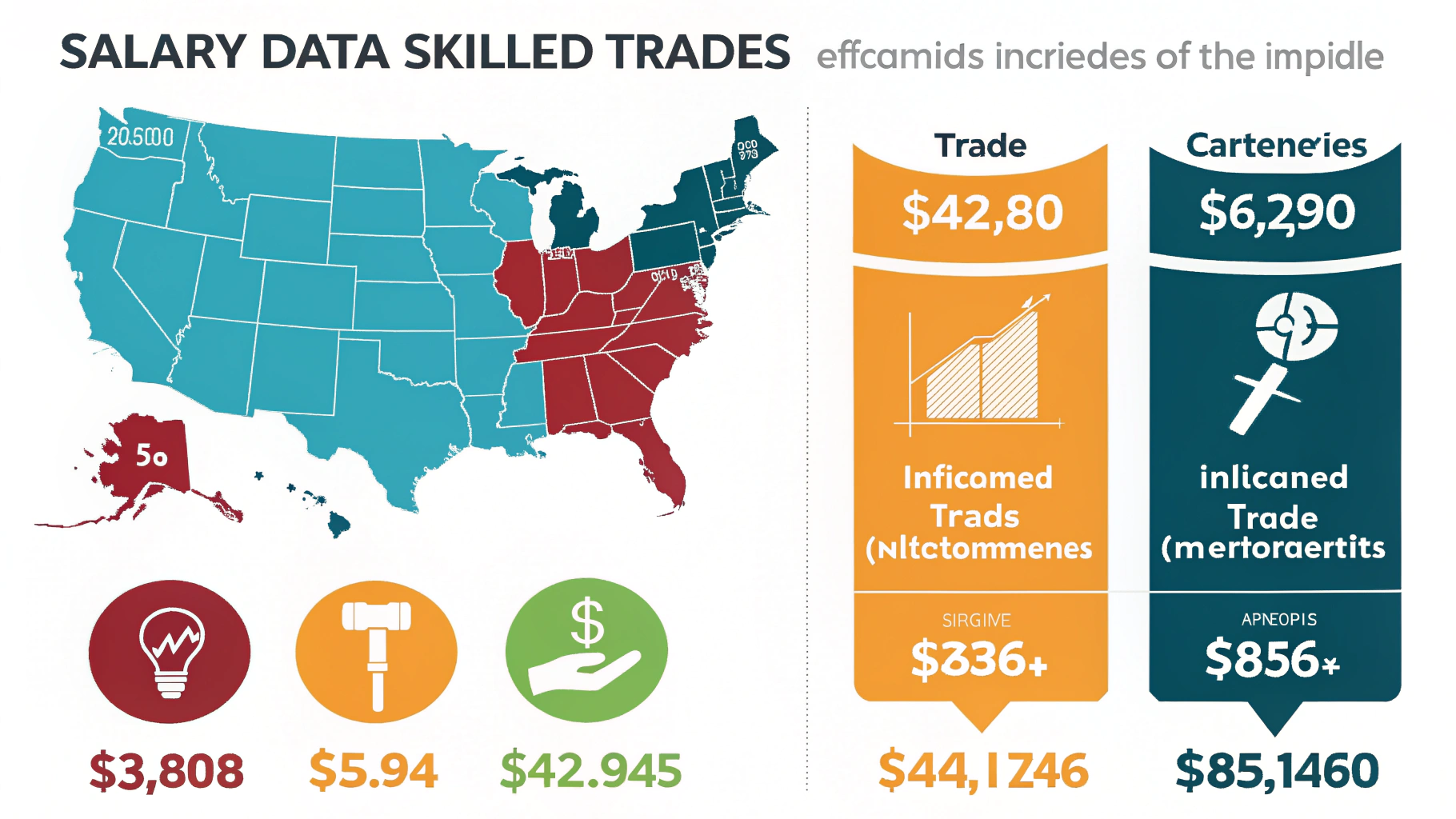The skilled trades are booming and it’s about time. With labor shortages driving wages 15-20% above inflation in sectors like construction 1, tradespeople now wield strong bargaining power to negotiate better pay. Yet many leave money on the table due to myths or lack of preparation. This guide delivers actionable salary negotiation trades strategies, combining real market data with proven tactics to help you get paid what you deserve.

Salary Negotiation Trades: Building Your Foundation
Know Your Market Value
Market data eliminates guesswork. Start by analyzing localized pay scales:
- Plumbers: $55K–$85K annually, with top earners exceeding $95K 1.
- Union Electricians: Certified specialists in high-demand states like California average $102K 34.
Geography creates dramatic splits. A Maryland welder might earn $22.51/hour, while peers in industrial hubs like Texas hit $33.17/hour 56. But location isn’t destiny, union presence, infrastructure projects, and specialized demand (e.g., solar installations) also sway pay.
Document Tangible Wins
Employers pay for results, not just skills. Gather evidence like:
- Efficiency gains (“Cut HVAC installation time by 25% using lean workflows”).
- Client testimonials highlighting reliability or problem-solving.
- Certifications with proven ROI (e.g., NATE certification increasing HVAC job bids by 18% 7).
 A Midwest study found tradespeople who present verified achievements secure raises 15–20% above peers 8.
A Midwest study found tradespeople who present verified achievements secure raises 15–20% above peers 8.
Salary Negotiation Trades: Key Earning Factors
Leverage Experience Strategically
Years matter, but how you frame them matters more. A 10-year master plumber doesn’t just “have experience,” they’ve reduced callbacks by 40% through precision pipefitting, or trained 12 apprentices who now lead crews. Quantify mentorship, error reduction, or tech adoption (e.g., drone roof inspections cutting assessment time by half).
Certifications That Cut Through the Noise
Skip generic credentials. Target certifications tied to unmet local needs like EPA 608 HVAC handling in cities pushing green retrofits. While 88% of nondegree certs fail to boost pay 9, niche credentials like welding API 510 inspector licenses can spike earnings by 50% 7.
Advanced Salary Negotiation Tactics for Skilled Trades
Scripts That Seal the Deal
Replace vague requests with value-driven dialogue:
“Your job listing mentioned needing someone to reduce equipment downtime. At my last site, I overhauled the maintenance schedule, cutting HVAC failures by 30%. With my NATE certification and these results, $75K aligns with local rates for this impact.”
Crush Counterproductive Myths
- Myth: “Only managers negotiate.”
Reality: Apprentices who negotiate starting wages earn $5K+ more yearly 11.
- Myth: “Negotiation risks the job offer.”
Reality: 72% of employers expect tradespeople to negotiate, it’s a sign of professionalism 12.
Anchoring in Action
Target 10% above your goal to shape the conversation. An electrician seeking $80K opens with $88K, creating room to settle at $83K while still exceeding their target 13.
Beyond Base Pay: Hidden Levers
Secure Guaranteed Overtime
40% of a pipefitter’s $90K annual income often comes from overtime 14. During negotiations, request first priority on high-paying overtime shifts during peak seasons.
Turn Training Into Earnings
Demand employer-funded certifications. For example, a $2K stipend for Commercial Driver’s License (CDL) training lets you haul equipment, a skill that adds $12K/year in side jobs.

Salary Negotiation Trades: Avoid Costly Errors
- Never lead with personal needs. Instead of “I need more for medical bills,” say, “My OSHA 30 certification reduces worksite injuries, saving $18K/year in insurance claims.”
- Watch for red flags: If employers refuse pay discussions after three respectful attempts, reconsider the role’s growth potential.
- Partner with unions: Collective bargaining agreements often include built-in raises. A Midwestern pipefitter’s union recently secured 8% annual hikes through 2027 1.
Your Action Plan
- Research: Use UnionMetrics or ZipRecruiter’s salary tool to benchmark your trade in your county.
- Build a brag book: Compile 5-7 key achievements with metrics (dollars saved, time reduced, certifications earned).
- Role-play: Practice negotiation scripts with a peer using mirroring techniques (“I hear budget concerns—would a $5K signing bonus plus 6-month review work?”).
Labor shortages won't last forever, but the negotiation skills you build now will. The key is knowing how to tie your requests to real market data, highlight the certifications that actually matter, and use tactics that work specifically in the trades. Get this right, and you'll turn today's hot job market into earning power that lasts well beyond the current boom.

